Episode 266: The Civic Power of Community
Welcome back. Before L. Joy gets into the heart of this episode, her first call to action is a request for your suggestions on what you would like to learn about. She can be found on all social media platforms @ljoywilliams or by email at joy@sundaycivics.org so reach out and let her know.
L. Joy highlights the value of local engagement by explaining the concept of "state engagement tables," where coalitions work together on various issues at the state level, supporting each other’s priorities year round. To break down this concept and share their experiences, she brings Tamieka Atkins, Executive Director of ProGeorgia, Brad Christian-Sallis, Director of Power Building at the Nebraska Table and James Hayes, Co-Director of Ohio Voice to the front of the class.
Their conversation opens with reflections on the disillusionment felt after major protests and elections, emphasizing how people often expect immediate change and become disengaged when it doesn’t happen. A sentiment which is particularly relevant today, where many feel deflated after recent elections, questioning the effectiveness of their civic engagement. Thinking about sustaining motivation in the face of apathy, Brad shares how his work in Nebraska focuses on celebrating incremental wins like achieving paid sick leave and medical marijuana legalization through ballot initiatives. Tamika adds that in Georgia, civic engagement is seen as a long-term strategy, not just tied to elections but aimed at building lasting power. She stresses the need to shift the mindset that elections are a “magic wand” for instant change, instead promoting year-round involvement in democracy. James concludes by highlighting a critical lesson: it’s not enough to be against something; organizations must offer positive, actionable visions for change. He reflects on missed opportunities in past crises (like the financial crisis and COVID-19) to drive systemic change, urging leaders to take bolder steps in reimagining government roles in people’s lives.
State Tables:
Tamika, Brad, and James then break down the idea of state engagement tables—a powerful collaborative model where various organizations unite under a common purpose. These tables aren't just temporary alliances; they are permanent coalitions that help organizations, which may not traditionally focus on civic engagement, to incorporate voter registration and outreach into their work.
Power in Togetherness:
State tables are about working in unison with value-aligned organizations. The power of collective effort lies in shared goals and resources, making advocacy work more impactful.
Support Systems for Organizations:
These tables provide essential tools, training, and infrastructure support, allowing organizations to run campaigns more efficiently. They're likened to a "Geek Squad for the progressive movement"—offering data support and capacity-building to enhance grassroots efforts.
Permanent Coalitions:
Unlike ad-hoc alliances, state tables are permanent coalitions staffed with dedicated resources. This continuity ensures a stable framework for organizations working across diverse areas such as affordable housing, environmental justice, healthcare, and rights restoration.
Community-Based Civic Engagement:
The guests emphasize the unique strength of involving non-traditional civic organizations (like healthcare clinics or social service providers) in voter engagement. These groups often interact directly with underserved communities, making them effective at ensuring these communities are not only registered to vote but also actively participating in the democratic process.
Building Sustainable Power:
The ultimate goal is long-term, sustainable change. By integrating civic engagement into various organizational strategies, these tables aim to empower communities to influence policy decisions that affect their lives.
Take Civic Action
Do-Now: Find and join a local or state-based organization aligned with your passions, such as housing, climate change, or taxes. It’s important of channel the same energy we invest in national elections into ongoing local efforts because that community engagement helps sustain momentum and build stronger connections.
